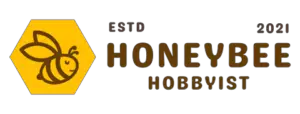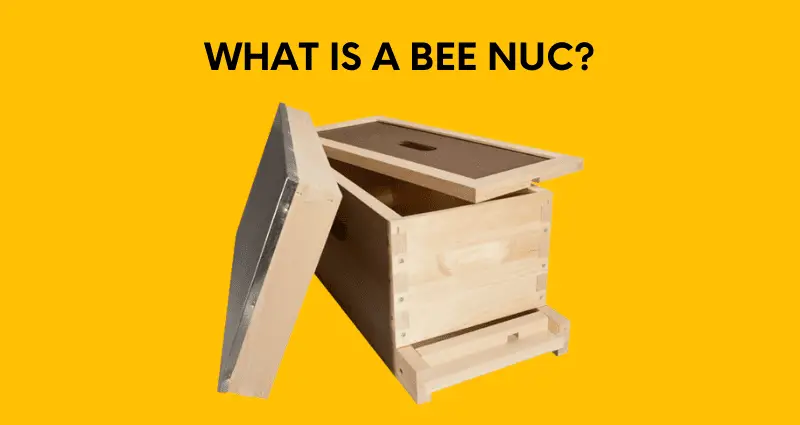A bee nuc, or 'nucleus colony' is a small colony of bees that includes the queen, worker & drone bees, brood frames, honey frames, and some stored honeycomb. You can consider a bee nuc as a “starter colony”, used to begin a new colony or introduce to an existing queenless colony.
As a beekeeper, expanding the colony or starting a new one is easy to do by either buying packaged bees or a bee nuc, a small nuclear colony of bees that includes frames of bees plus a drawn comb, honey, and brood.
Both have their advantages, but the one-stop-shopping approach of a honey bee nuc is a convenient and appealing way to grow the local bee population.
What Is The Difference Between A Nuc And A Hive?
“Beehive” is a word that describes where bees live, although scientists describe the place where bees house themselves as a “nest”. We use “hive ” to describe manmade structures where bees nest and live.
A nest features honeycombs, groups of hexagonal prismatic cells made of beeswax that store honey and pollen and house the brood at all stages of development. Beekeepers set up the hives to replicate the layout of a nest.
Click here to learn about popular hive types and how to select one that works for you.
Some bee nucs designed for transport are made of cardboard and may be closed up. Cardboard is not very sturdy and cannot protect the bees against heat and inclement weather; waxed cardboard nucs are sturdier. Bees run the risk of starvation and death in cramped, hot quarters.
What Is The Difference Between A Nuc Box And A Package Of Bees?
A nuc offers both the bees and structure for the hive that contains honeycombs and frames for honey production and raising the young, whereas a package of bees offers two or three pounds of bees.
They are sent in a wood screen box, a sugar syrup container for feeding, and around 10,000 bees of the varying casts (3,000-5,000 bees per pound).
The new queen will be mated and comes in a separate queen cage.
How Long Can Bees Stay In A Nuc?
A bee nuc is typically a starter home for a group of bees that contains frames that will be transferred to a more permanent hive.
In the standard five-frame nuc, the bees may stay there for two or three weeks. They have usually outgrown the nuc by this time and need more spacious quarters in a five. The beekeeper carefully removes the frame(s) from the nuc and places it inside the beehive.
So that the bees do not become disoriented, he places it in the permanent home in precisely the same direction and orientation as it had in the nuc.
Pros and Cons of Bee Packages vs. Nucs
Buying a package of bees or a nuc are excellent ways of setting up or expanding a colony of bees, but each method has pros and cons.
Packages of Bees
Pros
- A less expensive option as you are paying mainly for the bees rather than frames and honeycomb
- Easily shipped
- Widely available
- Sold in 2- or 3-pound packages for fast colony increases
- Great way to ensure a strong colony is established
Cons
- Bees from different colonies and often unrelated
- Queen bee is not established and unrelated to worker bees, so acceptance may take time
- Includes no honey, brood, or food stores
- Less prone to pests and disease
- Some bees are likely to die in transit
Nucs
Pros
- Bees are genetically related
- Established queen if ready to lay eggs
- Comes with frames, honey, brood, or food stores
- Sold in 4 or 5 frame colonies
Cons
- More expensive
- Frames and honeycomb can carry disease
- Must be purchased from local beekeepers as the nuc colony can’t be shipped
- It May still need to be supplemented with purchased bees
How Much Is A Bee Nuc?
The prices for a bee nuc and packages of bees vary by location.
At bee supply companies around the country, a three-pound package of bees might sell for $125-225, while a nuc starts around $150.
While the prices might seem lower for packages of bees, a nuc contains more equipment with eggs, larvae, capped brood, and a mated queen – but fewer bees.
Before buying a nuc, you should ask the following questions:
- How many frames of adult bees are included?
- How many frames of brood, honey, or food stores come in the package?
- What is the age of the queen?
- Is the cost of the nuc box included in the price, or does it have to be returned?
- Has the colony survived a winter (which means it will flourish in the spring) or is it a new hive?
- Has the colony been treated for parasites or disease?
Bees shipped to you have been confined and perhaps experienced delays, received insufficient food, or suffered from excessive heat. They are likely to be angry and stressed.
As they may come from different colonies and have an unfamiliar queen, they may need more time to form a functioning colony than bees purchased in a nuc.
Spending a bit more for a nuc may be worth it.
Since the nucs are picked up locally and not shipped, the bees are calmer. The nuc frames are similar to a bee’s normal environment; if the frames are properly placed in the existing hive, disruption is minimal. The bees will become productive sooner than with purchased packages of bees.
Experts agree that overwintered nucs will be more likely to produce a modest supply of honey in the first year and prepare the apiary for future success. Most new beehives require at least four months to produce honey.
There are risks to buying a nuc as parasites or other pests can infect the wood.
Types of Bee Nucs
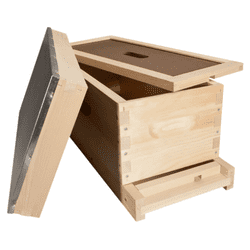
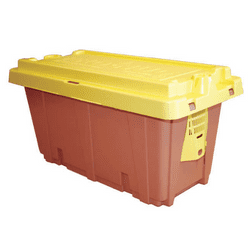
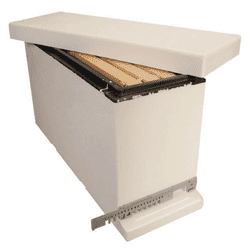
How To Purchase A Nuc
Most nucs need to be ordered in advance, which means you can’t pop in to look over a bee supplier’s stock and make a selection. The best advice for finding a supplier is to talk to other experienced beekeepers and buy from a reputable, experienced supplier. Websites from area vendors often answer many of the questions mentioned above, which allows you to know something about what is commonly offered in your locale.
You will need to pick up the bees in person. New beekeepers might consider shopping with someone more experienced who can help inspect the nuc.
If you transfer the bees a long distance, make sure they are not overheated or hungry during the trip.
Where Should I Locate My Nuc?
When you bring your nuc box home from the store, you should set it on top of your hive box and then open the entrance to the nuc box, near the bottom. Many bees will fly out to examine their new location and even start gathering pollen and nectar.
Within a couple of weeks, when you want to transfer the frames from the nuc box into the permanent hive with space for at least 10 frames. If you keep them in the nuc too long, they will be too crowded and are likely to swarm.
Experts on beekeeping suggest you should wait a full day before transferring, but a full week is optimum.
How To Transfer The Bees From The Nuc
Here are the steps for carefully transferring the frames from the nuc to the hive;
- You should wear protective beekeeping clothing (veil, jacket, suit) for this activity and light your smoker.
- Direct a puff of smoke near the entrance of the nuc box and across the top of the frames.
- Gently lift each frame from the nuc box and place it in the hive while maintaining the order and direction of the frame. You should alternate frames from the nuc box with empty frames.
- If bees remain in the nuc box after the transfer to the frame, turn the nuc box upside down and tap on it to encourage the bees to go into the frame.
- Put the newest frames from the nuc box near the center of the box and surround them with other frames. The newest frames are filled with brood you want to protect. (Make sure that the hive has the maximum number of frames.)
- Reduce the entrance open to a smaller setting.
- If you do not have sufficient honey stores to nourish the bee and are using an in-hive feeder, fill it with the proper mix of syrup and water and position it toward the top of the hive.
- Observe the bees for the first week, then do a hive inspection to make sure that all is well in the new home.
Buying established bee colonies is an excellent way to expand or improve a colony so long as you do your homework before you buy to ensure success once your bees are in place.
